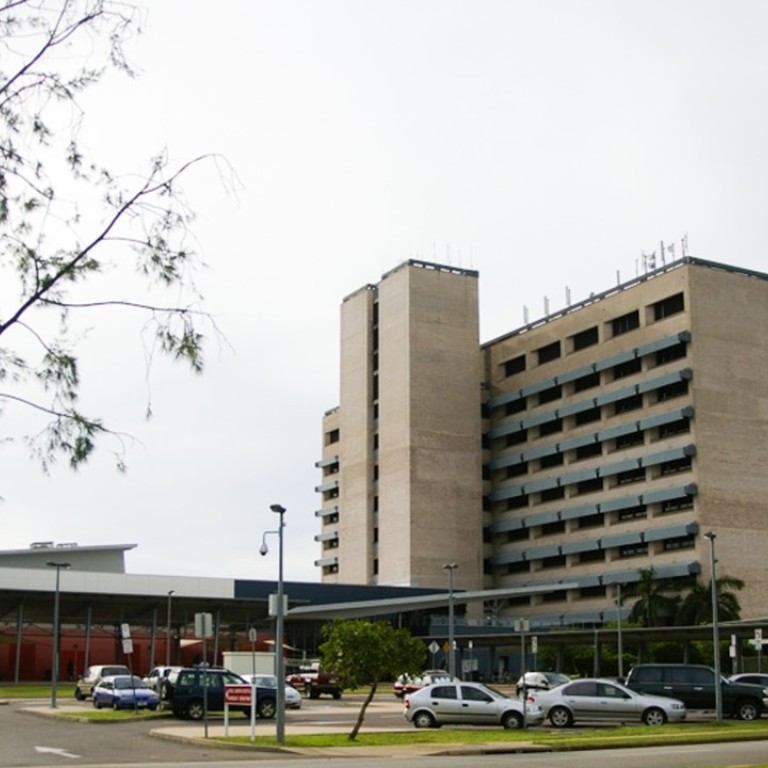
Australian hospital left Aboriginal man to die alone in agony from surgical injury
Doctors repeatedly blamed the man for his own death, which they did not believe was worth reporting
Medical failures at Royal Darwin hospital left an elderly Aboriginal man “untreated to die in pain” from an infected surgical injury, even after he complained he could “feel his body shutting down”.
When Albert Wilson’s family sought information about his sudden deterioration and death, Top End Health Service staff told them the 78-year-old was to blame for their lack of involvement in his treatment during his final days.
Communication issues were denied by the institution and in effect the deceased was blamed
The Northern Territory coroner has issued a scathing report detailing multiple failures by the health service, in findings released on Friday.
Coroner Greg Cavanagh said there was “poor communication with the man’s family, poor communication between doctors, poor note-taking in recording communication with the family, failure of the risk management system, inadequate care and treatment of a dying man, and failure to report the death to the coroner”.
He said for 18 months after Wilson’s death, “the communication issues were denied by the institution and in effect the deceased was blamed. That was an insult to the deceased and his family”.
“Top End health service seemed more intent on defending its actions than critically analysing the facts,” Cavanagh said.
Wilson had just turned 78 when he died of sepsis, caused by an injury to his bowel during surgery to treat advanced colorectal cancer in August 2016.
The doctors deliberately ignored our requests and shut us out of being part of the consultation process with regards to our father’s treatment
He was a member of the stolen generations. At the age of five he was taken from his mother in York, Western Australia, and sent to the punitive Sister Kate’s home in Perth. He never saw his parents again.
His grandson Peter Brown told the coroner that Wilson “grew up poor and was always cold at the home – he disliked the cold, so he eventually moved up to the territory where he would stay for the rest of his life”.
“Pop taught himself how to weld and built a boat, trailers, bull bars and tow bars. For someone who had a limited education, he had the ability to read plans and develop designs – all self-taught,” Brown said. “To summarise, Pop triumphed over adversity. He was strong, resilient, a hard worker, generous, caring, intelligent, great father and provider for his family.”
The coroner said Wilson’s family had been shocked by the suddenness of his death, and were confused about what happened. It was left to the most junior doctor on the team to explain the sudden deterioration.
In April 2017 Wilson’s daughter wrote to the Health and Community Services Complaints Commission.
Day of atonement arrives for stolen generation
“Over a period of 96 hours, in insurmountable pain, my father died of sepsis,” she wrote.
“My sister had constantly asked to meet the doctors for an update on our father’s condition. Left phone messages but had no responses.
“The doctors deliberately ignored our requests and shut us out of being part of the consultation process with regards to our father’s treatment.
“Our father usually relies on my youngest sister to explain more complex daily things to him and while he kept us informed to the best he could, of what the doctors did and were going to do, my sister should have been part of his decision making as he would not have been making an informed decision.”
It seems that the prevailing view was that … his death was expected ... Obviously, that logic is flawed
In the months after Wilson’s death, doctors insisted he told them not to tell his family about the severity of his condition, so they were limited in the amount of information they could provide.
But the coroner found “no foundation whatsoever” for this statement.
“It was troubling that with no evidence whatsoever Top End Health Service persisted in blaming Mr Wilson for the poor communication with his family,” Cavanagh said.
The coroner was also troubled that the health service did not deem Wilson’s death “reportable” – worthy of investigation by the coroner.
“There were at least five doctors present or involved at the time of Mr Wilson’s death or shortly thereafter,” he said. “None reported the death. It seems that the prevailing view was that … his death was expected ... Obviously, that logic is flawed. However, it was perpetuated in the response from Top End Health Service 18 months after his death.”
The coroner reminded the doctors that failure to report a death in such circumstances carries a penalty under the law. He made recommendations about governance, reporting systems and improving communication with families.
Skinny jeans land Australian woman in hospital for four days
“Clearly the doctors did not see good communication with Mr Wilson and his family as an important part of their care and treatment,” Cavanagh said “If they had, the terribly sad situation of Mr Wilson, alone and in severe pain, telling the registrar he ‘just wanted to die’ may have been avoided.”

